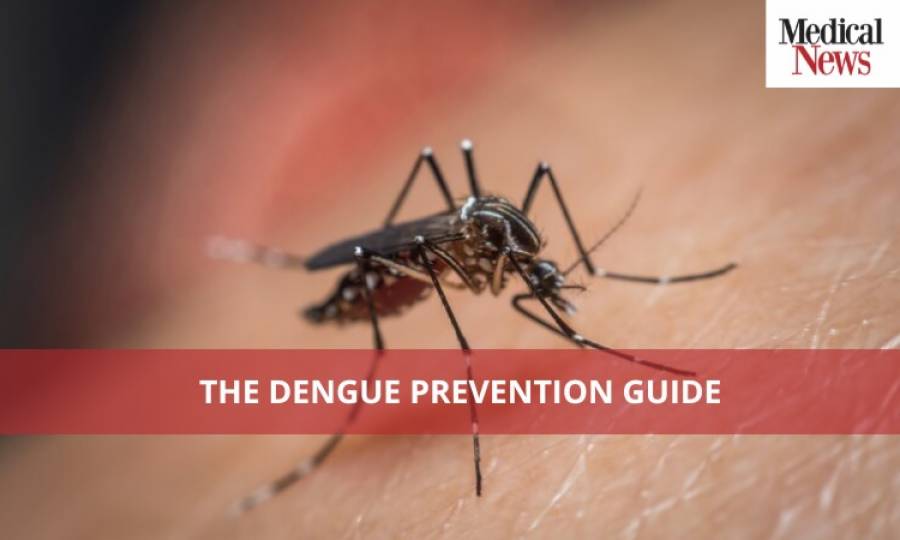The Dengue Prevention Guide

Dengue fever is a mosquito-borne sickness seen in tropical and subtropical regions. Even in its mild form, Dengue fever is associated with a high temperature and flu-like symptoms. Dengue fever's extreme form, dengue hemorrhagic fever, may lead to internal bleeding, a reduction in blood pressure (shock), and ultimately death. Dengue fever affects millions of people every year. Dengue fever is prevalent in sub-Saharan Africa, Latin America, and the western Pacific islands. Local outbreaks have occurred in Europe and the southern United States, but the illness has spread to new regions.
Vaccines against dengue disease are currently under development. At this time, the best method to protect yourself against dengue fever in regions where it is prevalent is to take measures to lower the mosquito population and avoid being bitten by mosquitoes.
Symptoms
Many people with dengue fever don't feel sick at all. Symptoms typically appear four to ten days after being bitten by an infected mosquito and may be misdiagnosed as the flu. Dengue fever is characterized by a high temperature and any of the following symptoms:
· Headache
· Nausea
· Vomiting
· Muscle pain
· Weakness
· Rash
How to prevent it?
If you live in or plan to visit a tropical location, the best approach to protect yourself against the illness is to avoid being bitten by mosquitoes. This necessitates taking precautions, including those aimed at reducing the mosquito population. Dengvaxia, a vaccine against dengue fever developed for use in children and adolescents aged 9 to 16, was given FDA approval in 2019. However, there is no vaccination available to the general public at this time. To prevent dengue:
· Use insect repellents even while you're not outside.
· Always use caution while going outside; dress warmly and wear long sleeves and trousers tucked into socks.
· If you have access to air conditioning while indoors, utilize it.
· Check any loose or ripped screens and patch them up immediately. Mosquito nets should be used in non-screened or non-air-conditioned sleeping rooms.
· Consult a medical professional if you experience any of the symptoms of dengue fever.
Treatment
Dengue fever cannot be treated with any one drug. You should use acetaminophen-based pain relievers if you suspect you have dengue fever, and stay away from aspirin-based pain medications since they may increase the risk of bleeding. You should also consult a doctor, get some rest, and drink plenty of water. Within the first 24 hours after your fever has subsided, if you have any worsening symptoms, you should visit a hospital promptly to be evaluated for consequences.
The bottom line
The most severe cases of dengue fever are an absolute emergency. If you have recently been to a region where dengue fever is prevalent and you have had a fever and any of the warning symptoms, you should seek medical assistance very once. Severe abdominal discomfort, nausea, vomiting, shortness of breath, or the presence of blood in the nasal passages, gums, feces, or vomit are all red flags. Eliminating mosquito breeding grounds is one way to cut down on their numbers. Old tires, cans, and flower pots can all be used to collect rainwater. If you have a bird bath or pet water dish outside, the water should be changed on a regular basis.
Trending
Popular
Over one billion people worldwide struggle with obesity, WHO study ...
-
Health Alert: Dried fruits found to ...
11:47 AM, 2 Mar, 2024 -
Quitting smoking early linked to better ...
09:56 AM, 19 Feb, 2024 -
Medical colleges should prioritize ...
11:03 AM, 16 Feb, 2024 -
JSMU workshop on quality assurance in ...
02:58 PM, 6 Feb, 2024




